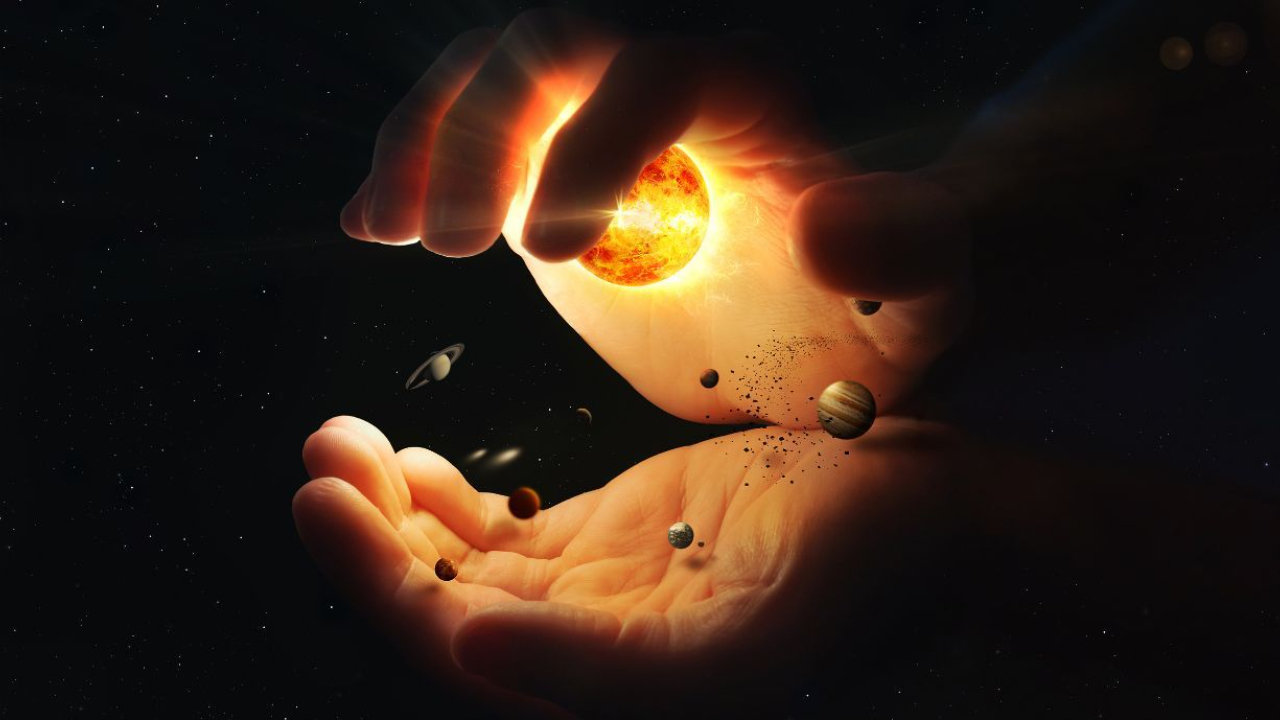Are we truly alone in the universe? It’s a question that has captivated humanity for generations. But perhaps the more profound question is, “What limitations might exist that keep us from comprehending and openly accepting a greater truth?” That’s the question I think we should be asking.
I believe the answers are often simpler than we’re willing to accept, yet we convince ourselves they must be more complex. As humans, we get so caught up in a web of our own knowledge, trying to piece together the truth using the tools we have—mathematics, physics, and religion—never actually questioning maybe the answer lies far beyond what we can comprehend. These tools, while powerful, are inherently limited to the human capacity of understanding. Right?
The tools that we have offer us only a glimpse of the greater reality, and in our quest for answers, I believe we fall into the trap of believing that we already know enough to definitively conclude the existence—or non-existence—of other beings.
And the more I study, the more I realize how self-centered the human race truly is.
Where Humans Fall Short in Understanding the Universe
As humans, we are limited by our inherent and often imperceptible constraints. We have a lens through which we view the world, yet, we are unaware that this lens even exists. We see life, Earth and the universe through what we know.
Think of it like we are kids looking out the window while riding the bus, and we assume that what we see through the glass is the whole world. But the window is smudged, the angle is limited, and we don’t realize there’s an entire vast landscape beyond what we can see. Our perception is shaped by what’s immediately in front of us, but there’s so much more waiting beyond the edges of our awareness.
This narrow view limits our perspective and causes us to dismiss anything outside the scope of what we can perceive and rationalize, and it kind of drives me crazy. It’s like peering through a keyhole, convinced that the sliver of what we can see is all there is.
This narrow-mindedness reflects a certain level of collective narcissism, where we assume that if something doesn’t fit within our limited viewpoint, it simply cannot exist. Or worse yet, we have an expectation that the universe needs to present us with evidence that something else exists in order for us to embrace it.
I’m not advocating for blind acceptance, but instead for an open-minded approach that acknowledges the limitations of our current knowledge.

To illustrate this, consider Plato’s Allegory of the Cave. In this allegory, prisoners are chained inside a cave, only able to see shadows projected on the wall in front of them. These shadows, mere reflections of the real objects behind them, are all they know. For the prisoners, the shadows are reality. They cannot conceive of a world beyond the cave, because they are trapped within the limits of their perception.
Much like those prisoners, we often mistake our limited perspective for the entirety of reality. We see the shadows on the wall—our understanding shaped by science, culture, and personal experience—and assume that they represent the full truth.
Yet, just as the prisoners would need to break free from their chains and leave the cave to perceive the true source of the shadows, we too must be willing to question and expand our perception if we hope to glimpse the broader truth.
This is where our inherent limitation becomes a form of collective hubris. We assume that if something doesn’t fit within our narrow view, it simply cannot exist. But what if, like the world beyond the cave, there is a vast and complex reality just beyond the reach of our current understanding?
What if there are truths we are not yet equipped to perceive, simply because our lens is too small? To truly explore these possibilities, we must first acknowledge the limitations of our perspective and remain open to the idea that our understanding of reality might be just the beginning.

Consider the argument: “Aliens don’t exist because we haven’t made contact.” It’s a statement rooted in our perception, but have we ever paused to think that alien communication might be so advanced, so far beyond our current capabilities, that there’s no need for them to lower their methods of interaction to reach us?
If we are like ants to them (tiny creatures in which they have little interest), why would we arrogantly believe they should be prioritizing communication with us?
Perhaps they exist on a frequency, in a dimension, or within a reality that we simply aren’t equipped to perceive.
Considering all of this, I believe the universe is teeming with countless extraterrestrial life forms that contribute to its beauty and boundless nature. One day, as humanity elevates its energetic frequency, we will be ready to embrace a reality far more expansive and awe-inspiring than anything we can currently imagine.


